As a result of Russia’s full-scale war against Ukraine, many infrastructure facilities have been destroyed. The water supply and sanitation sectors have been severely affected. The lack of access to water and hygiene, combined with other issues such as the loss of loved ones, homes, food shortages, and lack of funds, has catastrophic consequences for the lives and health of people. These conditions are especially difficult for residents of regions affected by the destruction of the Kakhovka Hydroelectric Power Plant.
Since 2022, Caritas Ukraine has implemented a comprehensive Water, Sanitation, and Hygiene (WASH) assistance program. A priority component is systemic solutions to restore access to water in the most needy and heavily affected communities. From 2022 to 2024, the comprehensive program has been implemented in the Kyiv, Kherson, Mykolaiv, Zaporizhzhia, Donetsk, Dnipropetrovsk, and Kharkiv regions.
The goal of the WASH program is to provide access to safe drinking water for the population, assist in the restoration of decentralized water supply systems for war-affected communities, ensure stable access to water for the population, improve hygiene conditions in collective accommodation centers and socially significant institutions, and help vulnerable populations access basic hygiene needs. We strive to support war-affected populations and communities in their efforts to recover from the crisis and provide access to basic needs in the water supply, sanitation, and hygiene sectors.
As a result of Russia’s full-scale war against Ukraine, many infrastructure facilities have been destroyed. The water supply and sanitation sectors have been severely affected. The lack of access to water and hygiene, combined with other issues such as the loss of loved ones, homes, food shortages, and lack of funds, has catastrophic consequences for the lives and health of people. These conditions are especially difficult for residents of regions affected by the destruction of the Kakhovka Hydroelectric Power Plant.
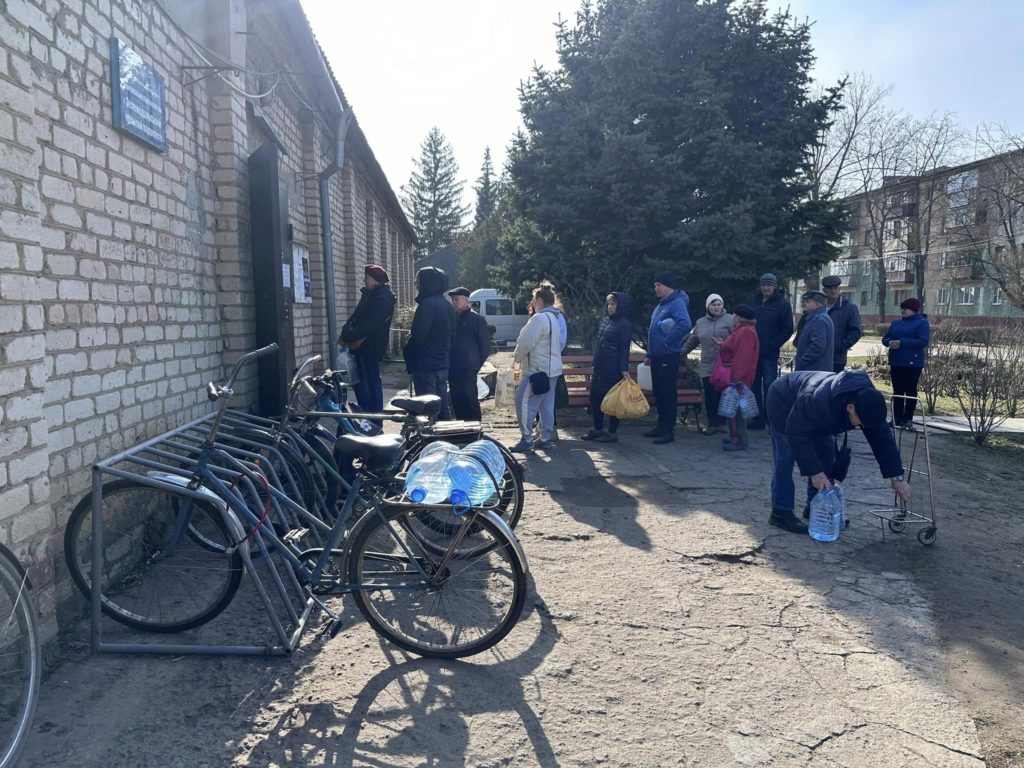
Since 2022, Caritas Ukraine has been implementing a comprehensive Water, Sanitation, and Hygiene (WASH) assistance program. A priority component is systemic solutions to restore access to water in the most needy and heavily affected communities. From 2022 to 2024, the comprehensive program has been implemented in the Kyiv, Kherson, Mykolaiv, Zaporizhzhia, Donetsk, Dnipropetrovsk, and Kharkiv regions.
The goal of the WASH program is to provide access to safe drinking water for the population, assist in the restoration of decentralized water supply systems for war-affected communities, ensure stable access to water for the population, improve hygiene conditions in collective accommodation centers and socially significant institutions, and help vulnerable populations access basic hygiene needs. We strive to support war-affected populations and communities in their efforts to recover from the crisis and provide access to basic needs in the water supply, sanitation, and hygiene sectors.
Main directions:
– Water Source Rehabilitation or Construction (Repair of existing decentralized water systems (boreholes, towers, storage tanks, etc.)).
– Installation of filtering equipment in socially significant institutions (e.g., filters).
– Emergency Water Supply:
Distribution of bottled water.
Provision of water trucking.
– Distribution of hygiene kits (cash, in-kind).
– WASH Facilities Rehabilitation:
Provision of laundry equipment (dryers, washing machines).
Shower rehabilitation or construction/installation.
Toilet rehabilitation/installation (including handwashing facilities).
– Provision of Generators for Water/Wastewater Service Providers: Supporting the operation of water supply systems by providing generators for water/wastewater service providers.
Development Plans:

“One of Caritas’ priorities for the upcoming summer season is ensuring access to clean drinking water and hygiene, especially in our arid frontline eastern and southern regions. Since February 2022, we have intensified our efforts in water supply and the restoration of decentralized water systems. With the support of our donors Cordaid (Netherlands), the Ukrainian Humanitarian Fund (UHF), Caritas Norway, and the Norwegian government organization – NORAD, we have completed or are in the process of installing powerful filtration stations at social infrastructure facilities, particularly in hospitals, maternity wards, schools, and water utilities. We are also focused on restoring wells and installing water towers or pumping stations to provide water to the most needy and war-affected communities. During this period, we continue to distribute drinking water and hygiene kits to ensure that vulnerable residents of frontline areas have daily access to basic needs,” says program manager Tetiana Yatsiuk.
During 2024-2025, we plan to implement specific projects and activities aimed at:
– Restoring water infrastructure in war-affected communities, ensuring their stable operation, and supporting local organizations in this process.
– Improving hygienic conditions in collective living spaces to ensure the safety and comfort of people affected by the war.
– Providing access to basic hygiene supplies for the most vulnerable groups, including children, women, and the elderly.
– Providing informational materials on hygiene and health, focusing on disease prevention and increasing public awareness.
– Actively cooperating with local communities, authorities, and international partners to effectively achieve our goals and coordinate efforts.
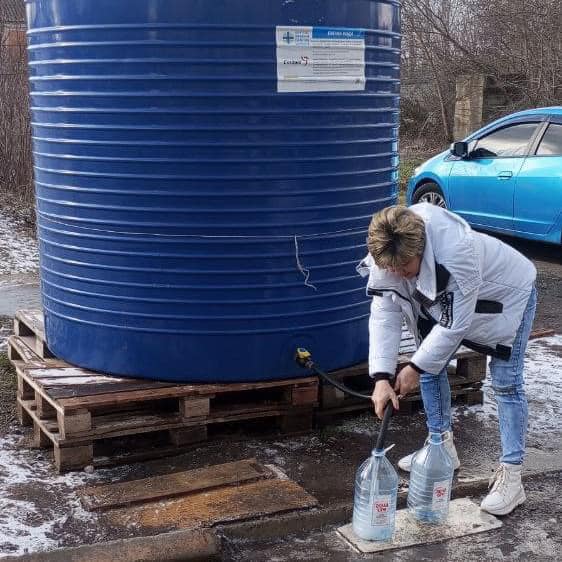
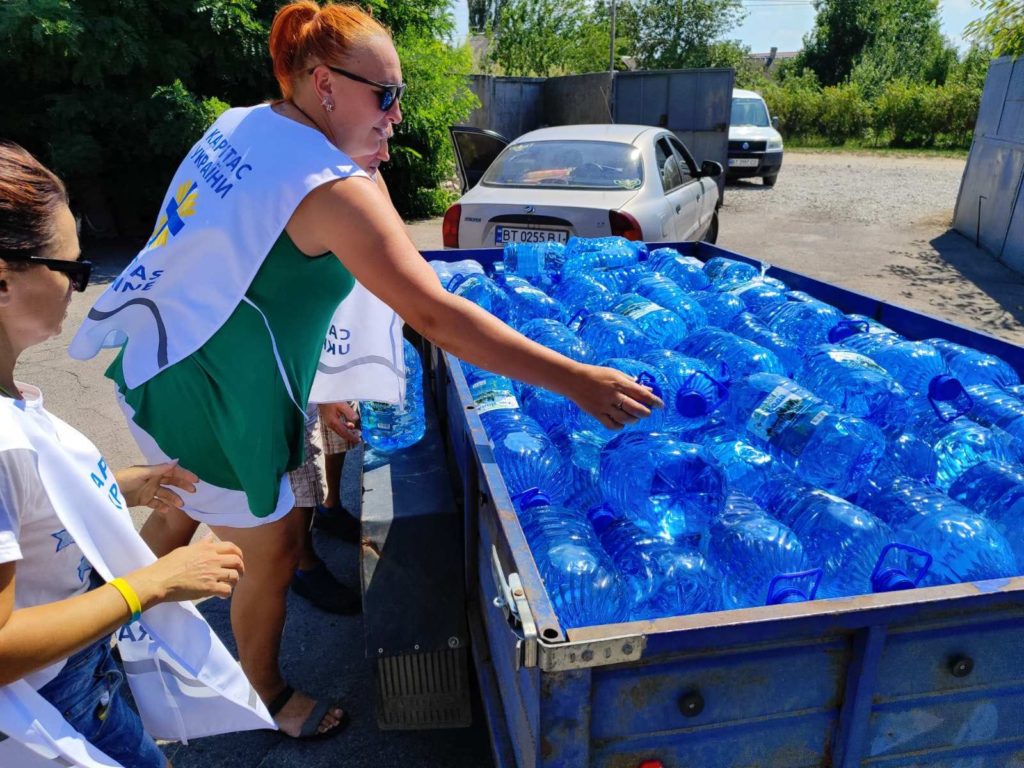
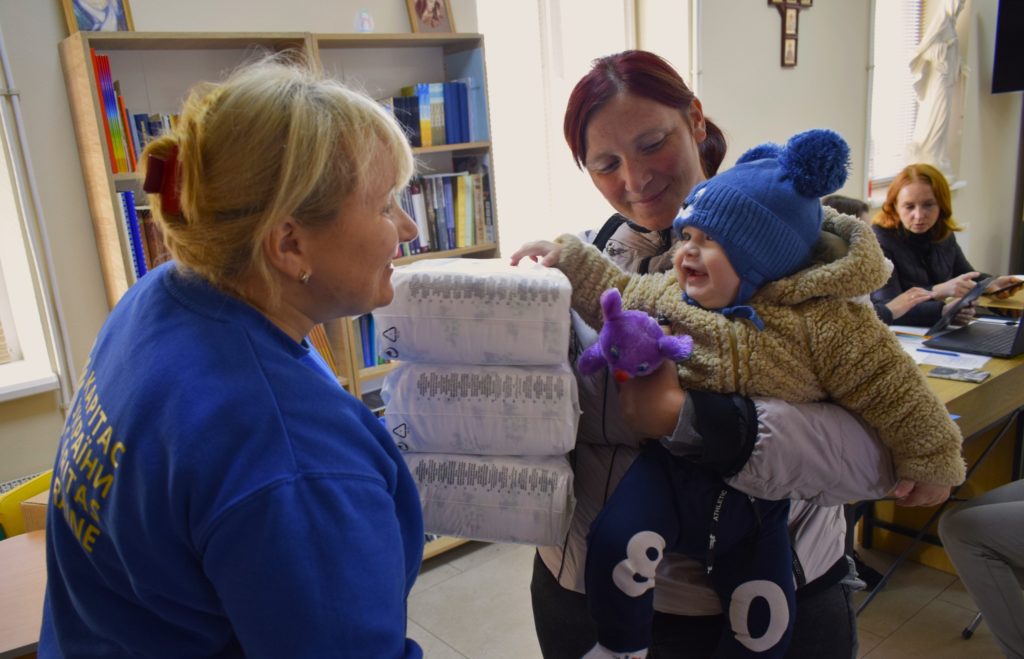


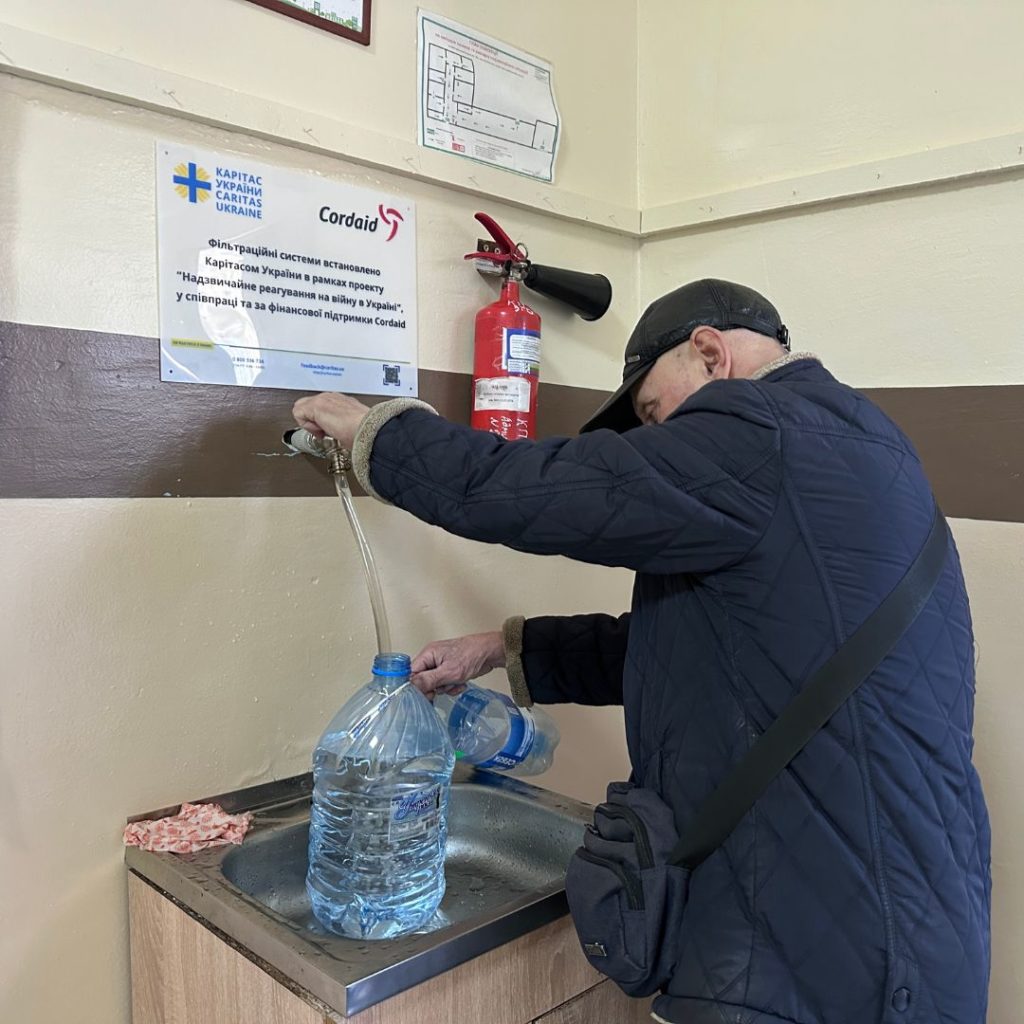
Report Information for January – May 2024
– Hygiene Kit Distributions / WASH NFI distributions (in-kind) – 25,926 beneficiaries
– Emergency Drinking Water Supply:
Provision of bottled water – 4,608 beneficiaries.
Water trucking – 6,015 beneficiaries.
– Restoration of Water Sources and Water Purification in Zaporizhzhia, Dnipropetrovsk, Kherson, Donetsk, Mykolaiv, and Kharkiv Regions.
Installed:
– 21 water towers and 21 boreholes: 35,000 people gained access to water.
– 35 filtration stations in healthcare facilities, schools, kindergartens, water utilities, and other socially significant institutions: 39,000 people gained access to water.
– Ongoing Preparatory Work: Restoration of 7 water sources; Installation of 4 powerful filtration stations in Kharkiv Region.
Implementation Regions
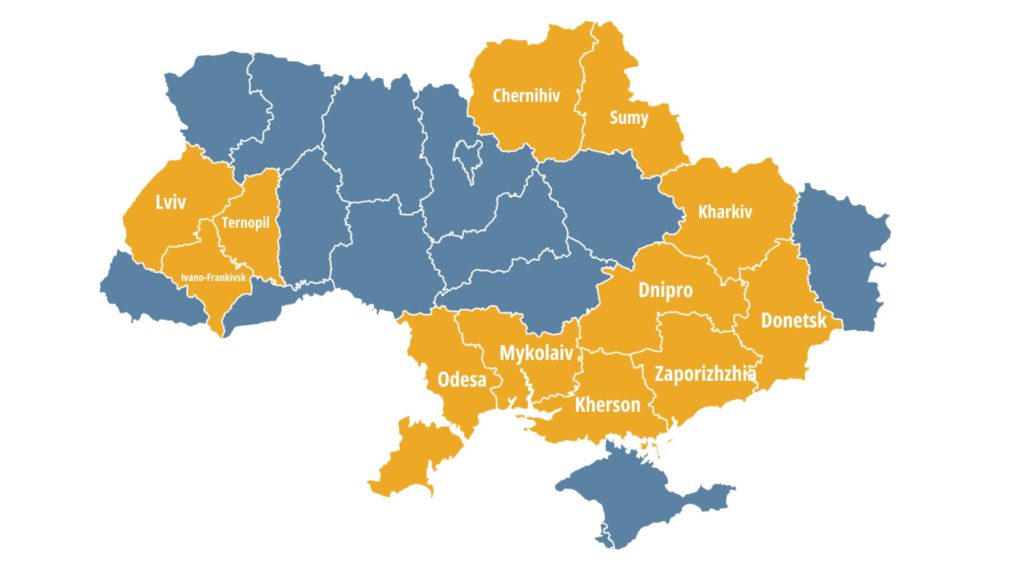
Kyiv region is the first to have a large-scale water supply restoration project
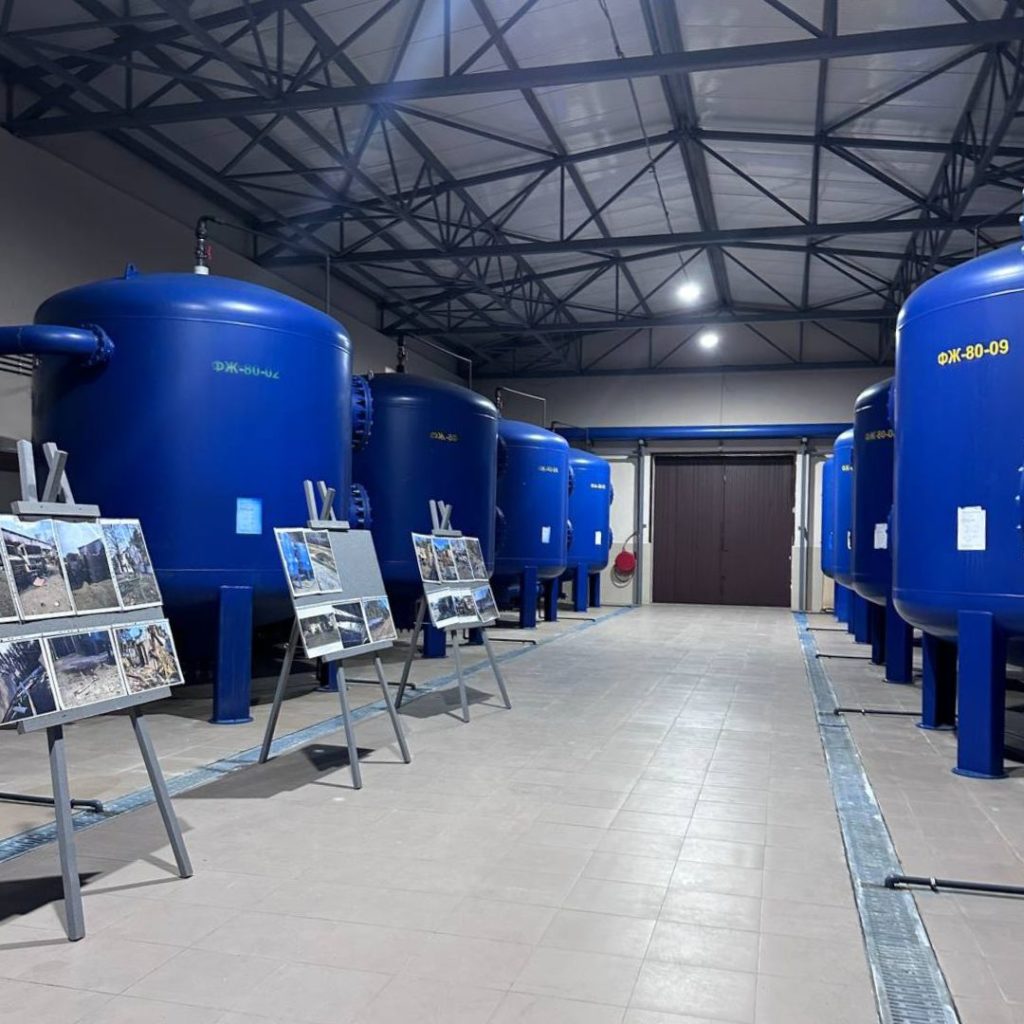
Due to Russian military aggression, the largest water purification and de-ironing station of the Irpin Water Utility in Irpin was damaged, which provided water to over 210,000 residents. In 2022-2023, Caritas Ukraine provided financial assistance for construction and installation work and the purchase of powerful filtration equipment. Importantly, the purification station operates without chemical reagents (chlorine and hypochlorite) and uses natural filtering materials. This assistance quickly and safely restored and stabilized the water supply system of Irpin, improving living conditions for over 210,000 residents and more than 30,000 internally displaced persons (IDPs). Additionally, 10 schools, 6 kindergartens, and medical facilities, including the Irpin Central Hospital, Children’s Hospital, and 7 clinics, benefited from this project.
As part of the “Protection Support for People with Disabilities in Newly Accessible Territories” project, supported by UHF (2023-2024), 4 wells were restored, and 5 filtration stations were installed in Mykolaiv and Kharkiv regions.
Water Supply for Affected Communities in Kherson and Mykolaiv Regions
Residents of Mykolaiv and Kherson regions have endured numerous hardships over the more than two years of full-scale invasion: shelling, occupation, lack of electricity and gas, living in cellars and basements, and the destruction of the Kakhovka Reservoir. Today, water supply issues are among the most critical in the southern region. Everyday tasks, such as cooking, making coffee or tea, and brushing teeth, become constant inconveniences and sometimes real challenges without good water.
Last year, Caritas Mykolaiv, with the support of Caritas Ukraine, initiated a major project to install water purification systems for social facilities in the city and region. One of these facilities was the Stepivskyi Children’s Home, which housed 129 people with mental disabilities. Mykolaiv City Maternity Hospital No. 2 became the second social facility where Caritas Ukraine supported the installation of filtration and purification systems. The water for purification comes from a well and is used for drinking, cooking, and by the mothers giving birth. Importantly, purified water is accessible not only to patients and hospital staff but also to local residents. Additionally, patients of the Bereznehuvate Central District Hospital and residents of the village have free access to purified drinking water.
During 2023-2024, within Mykolaiv and Kherson regions, we worked on ensuring access to water for residents of communities affected by the destruction of the Kakhovka Hydroelectric Station. With the support of the Ukrainian Humanitarian Fund (UHF), a project was implemented to restore 7 wells and install 4 filtration stations.
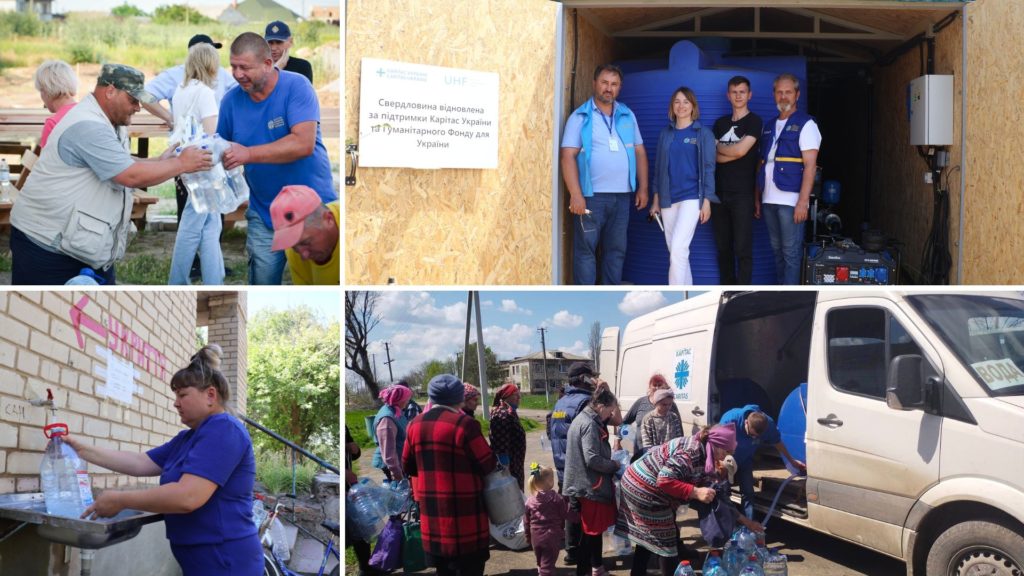
Strength in Solidarity
The Caritas Ukraine team tirelessly works with international partners and donors to increase the volume of aid provided to the war-affected population. Our experience and professional team, well-developed action plan, logistics, and clear procurement and distribution procedures enable us to promptly implement systematic solutions for restoring access to water and responding to the humanitarian crisis caused by the war.
Water Supply Support from Cordaid
With the support of Cordaid, Caritas is restoring water towers, repairing wells, and installing water filtration systems in the Kherson and Dnipropetrovsk regions. Thanks to this support, 33,400 people affected by the destruction of the Kakhovka Reservoir now have access to water. In December 2023, Caritas Kryvyi Rih installed a water tower in the village of Velyka Kostromka, part of the Zelenodolsk community in the Kryvorizhsk district of Dnipropetrovsk region. In the Hleivatska Territorial Community, eight filtration systems have been installed. A new water tower was also installed in the village of Borozenske, Kherson region. The village’s water network was damaged by the occupiers, leading to a shortage of drinking water for local residents. Now, the residents have a stable water supply. A powerful filtration station was also installed at the Zelenodolsk City Water Utility. Now, residents affected by the Kakhovka Reservoir explosion can receive up to 3 tons of purified drinking water per day for free.
Work is currently underway to restore seven water sources and install four powerful filtration stations in the Kharkiv region.
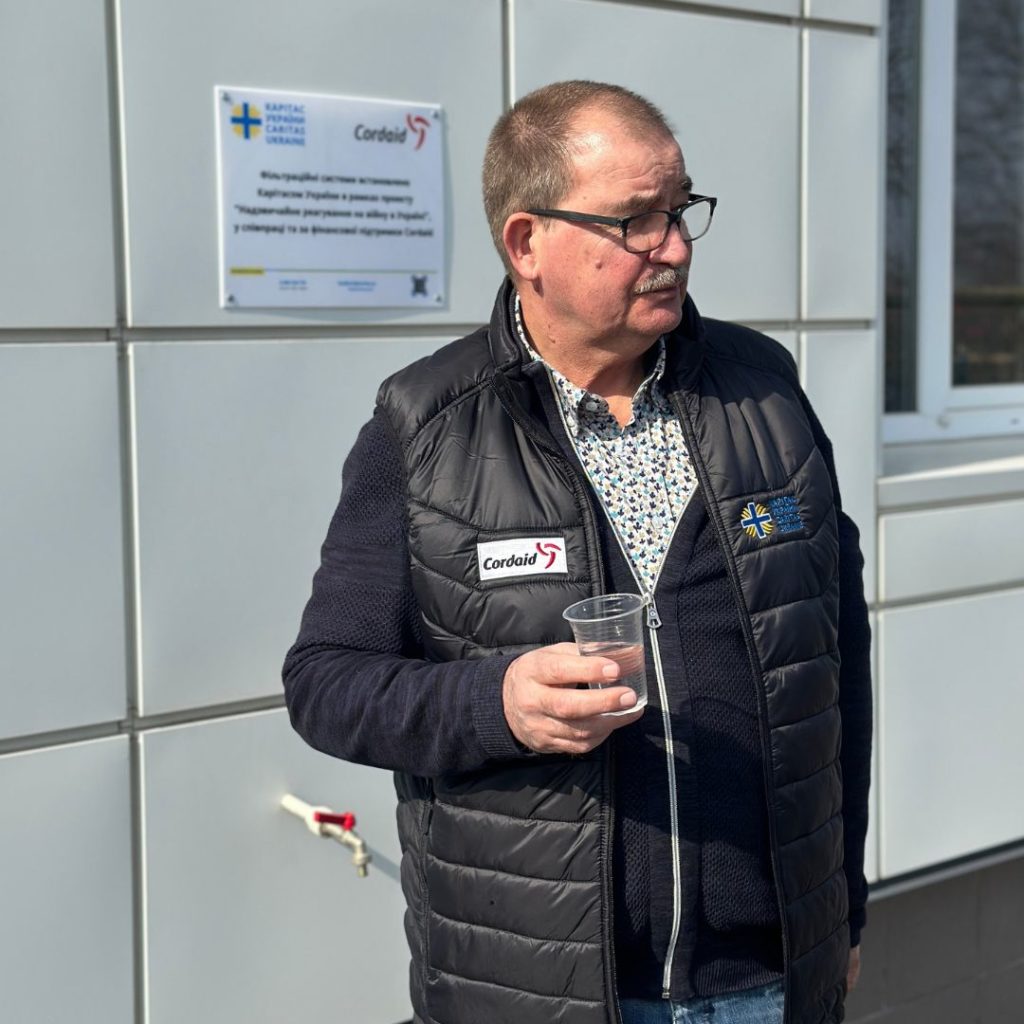
“If you look at recently liberated areas or areas close to active combat zones, people have no access to water. Therefore, the work of Caritas in restoring water supply and sanitation in remote, war-affected communities and socially significant institutions is very important. I believe that Ukraine and its people need our support. I have visited war-affected regions before and seen the dire situation people are in, with their lives and health constantly under threat. These are mostly vulnerable people who suffer the most from the war. Therefore, they need our help urgently. They cannot manage on their own right now. It is crucial to provide support”, notes Paul Borsboom, Global WASH Advisor at Cordaid (Netherlands).
Water Supply Support from Caritas Norway
With the support of Caritas Norway and the Norwegian Agency for Development Cooperation (Norad), we are actively distributing drinking water in the Donetsk region and frontline settlements in the Zaporizhzhia region. At the community level, we focus on restoring water supply sources and ensuring water purification. Specifically, with the support of our partners, we are working on restoring nine wells and towers and installing 15 filtration stations in the Donetsk and Zaporizhzhia regions.
Our ongoing efforts are also directed toward providing personal and household hygiene items to those who cannot afford or access them. This includes internally displaced persons (IDPs), residents of collective centers, and vulnerable families in settlements along the demarcation line. As of early June 2024, with the support of Caritas Norway, over 10,000 hygiene kits have been provided to people with disabilities, children, and vulnerable individuals.
“One of the things you very quickly discover is the resilience of the people. We’ve been wandering around a bit in the city. We’ve seen bombed houses. We’ve seen bombed buildings, but we also see the resilience in the people. We see people bicycle around, people walk around, which means that there is hope in the people living here. A hope for a better future. Caritas Norway, together with other Caritas organizations, is supporting WASH activities. The needs in the region are tremendous, not just for WASH but for most things, and all the Caritas organizations or perhaps also people from outside of the Caritas family. I think it is tremendously important to support the population, not just in this village but in Ukraine. So my hope for 2024 and 2025 and the future is not just for a Ukrainian victory but also that we continue to work to support the people in need, which are all the people that you see around you walking around the streets hoping for a better tomorrow,” said Alexander Roscestad, a representative of Caritas Norway, during a monitoring visit to the frontline town of Novogrodivka in the Donetsk region.
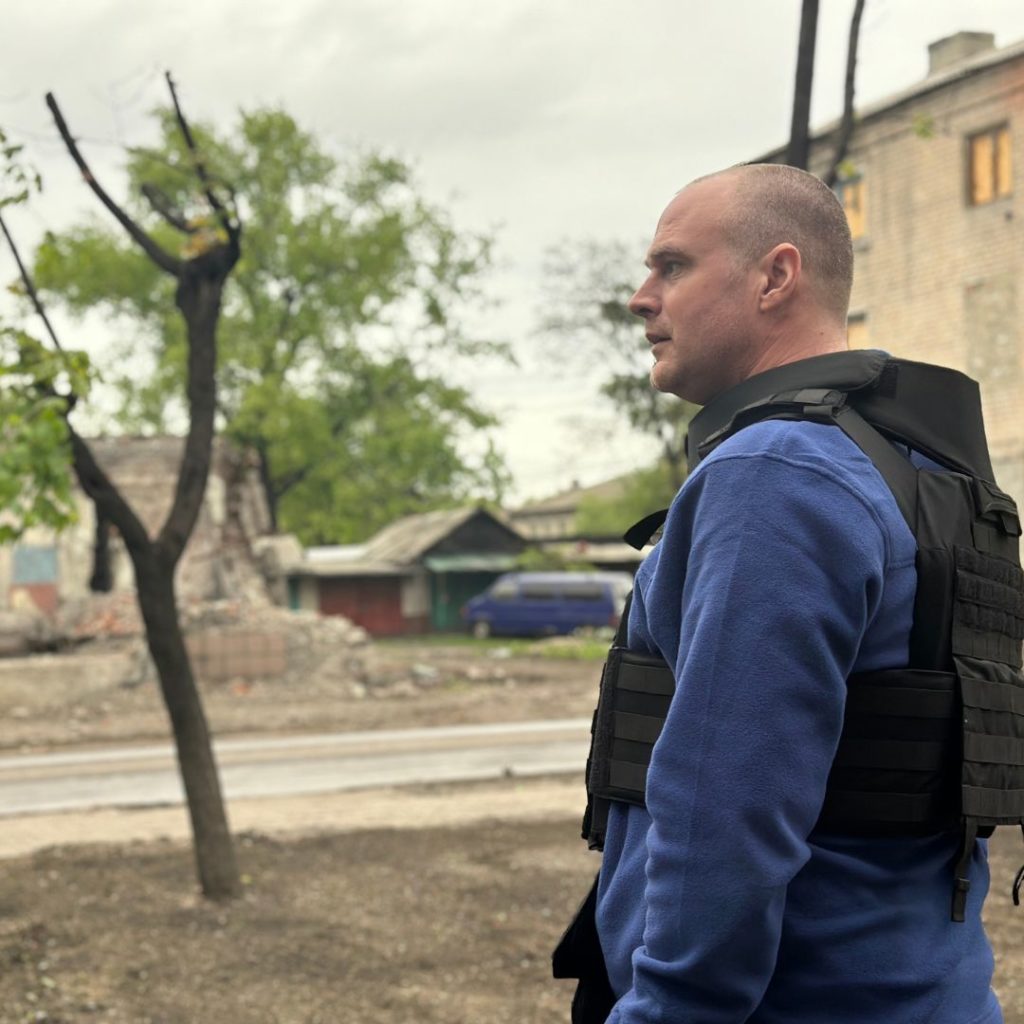
Key Needs and Challenges
Effective implementation of the WASH (Water, Sanitation, and Hygiene) program requires a comprehensive approach where each of the listed aspects is considered and integrated into an overall strategy. This will ensure sustainable development and improve the quality of life for those affected by the war.
1. Long-Term Projects for Restoring Water Supply Systems:
Need: Implementation of long-term projects (3-5 years) that include the restoration and reconstruction of destroyed water supply infrastructure in communities, ensuring its stable operation, and developing an exit strategy.
Challenge: Securing funding for long-term projects, maintaining high levels of community and local authority engagement, and monitoring and evaluating the effectiveness of projects throughout their implementation period.
2. Improving Conditions and Access to Water in Collective Centers and Temporary Residences:
Need: Providing access to clean water and sanitary conditions for residents of collective centers and temporary residences. Creating conditions for dignified living and developing an exit strategy from these centers.
Challenge: Quickly responding to the needs of new and existing centers, ensuring continuous supply of resources, coordinating with other humanitarian organizations and authorities to avoid duplication of efforts, and using resources effectively.
3. Program Team for Planning and Improving Program Activities:
Need: Having a program team that works on planning, improving program activities, resource mobilization, and finding optimal solutions for resource utilization.
Challenge: Attracting specialists, ensuring their continuous professional development, and creating effective mechanisms for managing and coordinating the team’s activities.
4. Development of Local Teams’ Capacity:
Need: Enhancing the capacity of local teams to update information on the population’s needs, involve the program in solving problems, and coordinate actions with the community and local population.
Challenge: Providing resources for local teams, supporting their motivation and active involvement, and creating mechanisms for effective communication and cooperation with other stakeholders.
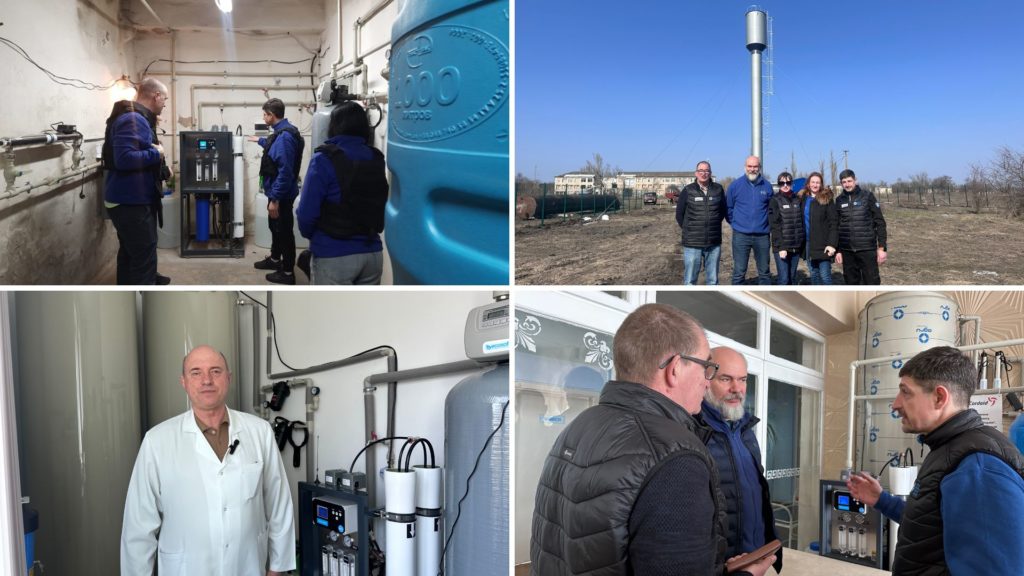
List of Caritas Ukraine Projects with a WASH Component Implemented in 2024:
Emergency Response to War in Ukraine including Liberated Territories
Regions: Donetsk, Zaporizhzhia
Rapid Response to the Humanitarian Crisis in Ukraine Caused by the Destruction of the Kakhovka Dam
Regions: Mykolaiv, Kherson
Multi-Sector Assistance to War-Affected People in Ukraine
Regions: Donetsk, Dnipropetrovsk, Zaporizhzhia
Enabling Meaningful Access to Protection and Basic Needs
Regions: Sumy, Chernihiv, Zaporizhzhia
Ensuring Critical Basic Needs for the War-Affected Population of Ukraine and Liberated Territories (Emergency Appeal 2024)
Regions: Donetsk, Zaporizhzhia, Kharkiv, Kherson, Sumy
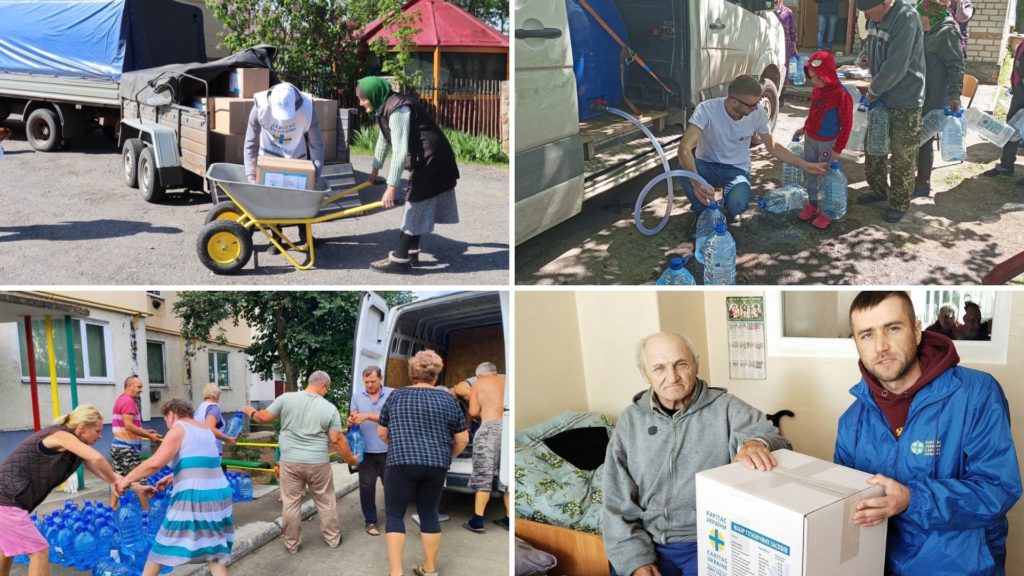
Our approach focuses on sustainable development, long-term planning, and creating conditions for community self-sufficiency in the water supply, sanitation, and hygiene sectors. We aim to support communities in restoring and strengthening their water supply systems to ensure sustainable development and improve the quality of life for the population affected by the war.


